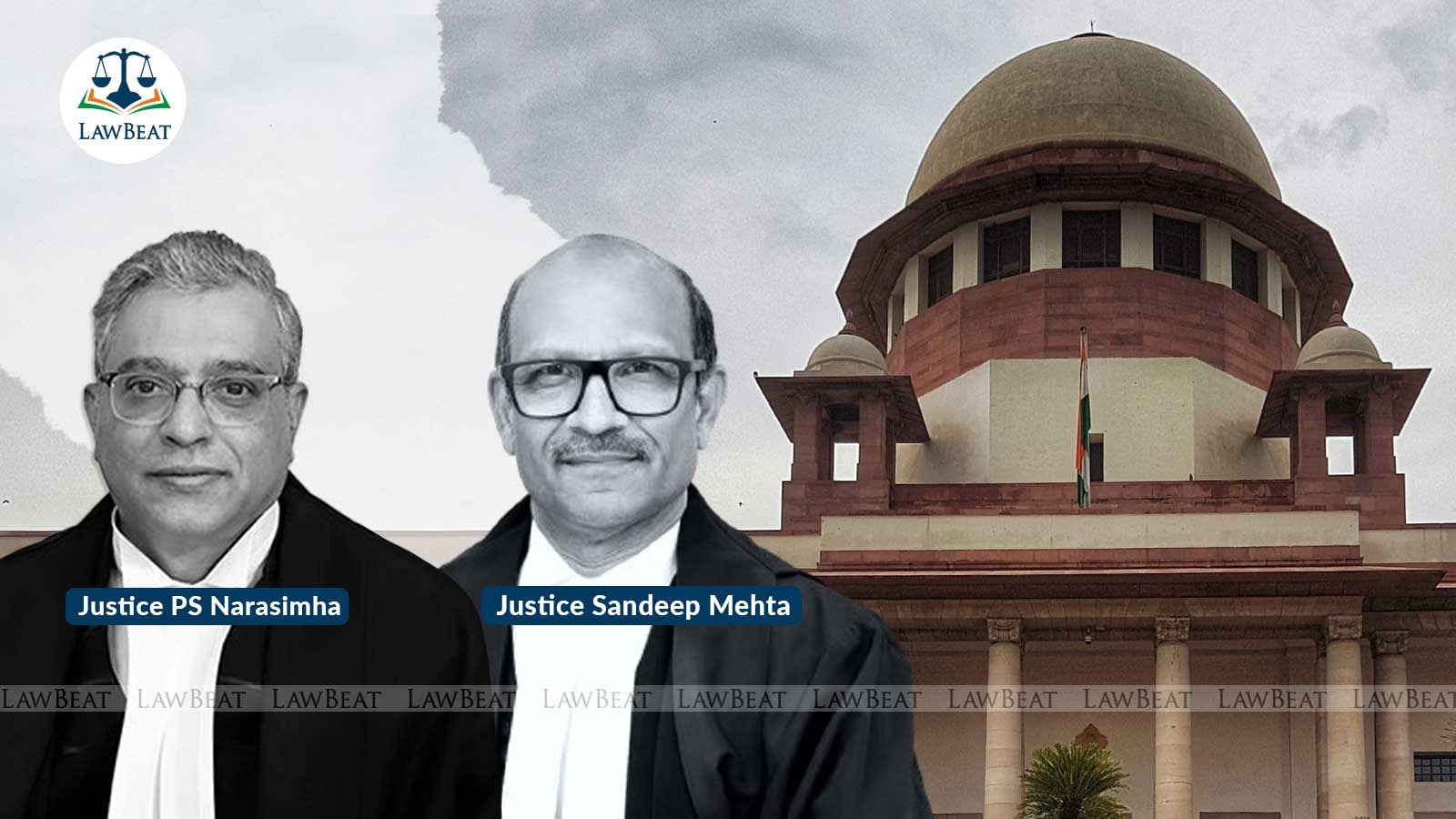Plea for Arbitration Time Extension Allowed After Statutory Period on Sufficient Cause: SC

Court pointed out that the Arbitration and Conciliation Act adopts the well-known language of limitation statutes and provides that the court can extend the time if it finds that there is sufficient cause
The Supreme Court on November 22, 2024, held that an application for extension can be filed either before or after the termination of the Arbitration Tribunal’s mandate upon expiry of the statutory and extendable period on availability of sufficient cause.
"The primary objective in rendering an arbitral award is to resolve disputes through the agreed dispute resolution mechanism as contracted by the parties. Therefore, 'sufficient cause' should be interpreted in the context of facilitating effective dispute resolution," the bench of Justices P S Narasimha and Sandeep Mehta said.
The court pointed out that efficiency in the conduct of arbitral proceedings is integral to the effectiveness of the dispute resolution remedy through arbitration.
"Efficiency is inextricably connected with expeditious conclusion of arbitral proceedings. While the statute incorporates party autonomy even with respect to the conduct and conclusion of arbitral proceedings, there is a statutory recognition of the power of the court to step in wherever it is necessary to ensure that the process of resolution of the dispute is taken to its logical end, if according to the court, the circumstances so warrant," the bench said.
The court emphasised that it is in this context that the Arbitration and Conciliation Act adopts the well-known language of limitation statutes and provides that the court can extend the time if it finds that there is sufficient cause.
Dealing with an appeal filed by M/s Ajay Protech Pvt Ltd, court allowed the plea and extended the time till December 31, 2024 to make the Award.
The bench examined the issue of whether the application filed by the appellant under Section 29A(4) of the Arbitration and Conciliation Act, 19961 for extension of the mandate of the Arbitral Tribunal ought to have been allowed by the High Court.
"The text of Section 29A was sufficient for us to come to the conclusion that the court has the power and jurisdiction to extend the period. Further, in the facts and circumstances of the case, we found that there is ‘sufficient cause’ for the court to extend the period for making the Award. Thus, we have allowed the appeal," the bench said.
In the case, the appellant entered into a works contract with respondent no 1. Subsequently when disputes arose, appellant sought resolution through arbitration by issuing a notice. The appellant’s application under Section 11 of the Act for appointment of a sole arbitrator was allowed by the High Court.
After the first meeting of the Arbitral Tribunal on June 24, 2019, parties were given time to complete their pleadings, which were in fact completed on October 09, 2019. The statutorily stipulated 12-month period under Section 29A(1) for making the award commenced from that date and expired on October 08, 2020. Further, as the parties can extend this period by another six months by mutual consent as per Section 29A(3), upon such mutual extension the time for making the award got extended till April 09, 2021. Therefore, the 18-month period, which commenced on October 09, 2019, would have naturally expired on April 09, 2021.
However, before the expiry of the said period, in fact, even before the first stretch of 12 months, the nation was affected by the COVID-19 pandemic.
Taking note of this situation, the bench pointed out, that the top court in Re: Cognizance for Extension of Limitation by order on January 10, 2022, passed orders declaring that the period between March 15, 2020, and February 28, 2022 should be excluded in computing periods of limitation under Sections 23(4) and 29(A) of the Act.
The High Court had held that the mandate of the Arbitral Tribunal stood terminated on April 09, 2021, at which point there was not even an application for extension of time pending before it.
Referring to Rohan Builders (India) Pvt Ltd Vs Berger Paints India Ltd, the bench said that it has been held that an application for extension can be filed either before or after the termination of the Tribunal’s mandate upon expiry of the statutory and extendable period.
"As per Section 29A(5), the decision to extend the time is an exercise of discretion by the court and must be done on sufficient cause being shown, and on such terms and conditions that the court deems fit," the court said.
The issue before the court was not whether the application under Section 29A(4) was filed within the permissible time for seeking extension, i.e., 12 months, followed by another six months at the consent of the parties. The real issue was whether there was a sufficient cause for the court to extend the period for making of the award, the bench noted.
"Having taken note of the fact that the pandemic had commenced even before the expiry of 12 months from the completion of pleadings, this court excluding the period between 15.03.2020 to 28.02.2023 in Re: Cognizance for Extension of Limitation, and the agreement between the parties on 05.05.2023 to seek extension of time by filing an application before the court, we are of the opinion that there is sufficient cause for extension of time," the bench said.
The court therefore allowed the civil appeal and set aside the order and judgment passed by the High and extended the period for making the award by the Arbitral Tribunal till December 31, 2024.
Case Title: M/s Ajay Protech Pvt Ltd Vs General Manager & Anr
